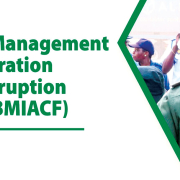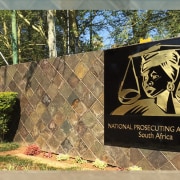|
Getting your Trinity Audio player ready...
|
With corruption only expected to increase, the debate on out-of-court settlements should be revisited.
By Petrus Marais, Karam Singh and Kaede Wildschut
First published on Business Day
There can be no doubt that South Africa is battling a crisis of fraud and corruption. The Zondo state capture commission has exposed the depths of state corruption and looting of the public purse, recently hearing evidence that the total cost of “Gupta state capture” could be as much as R50-billion.
There is an expectation that corruption will continue to fester in both the private and public spheres. The FTI SA fourth quarter 2020 Resilience Barometer found that 85% of South African business leaders expect an increase in corruption in 2021. All of this points to a wave of fraud and corruption matters breaking over the investigative and prosecution authorities. Will they be able to cope or are alternative solutions required?
Criminal prosecutions can take years to build and investigate before equally lengthy trials even begin. There is a need for alternative methods of processing economic criminal cases to deal with the urgent corruption crisis and avoid a backlog in cases that may only be heard in years to come. While there are mechanisms to resolve criminal cases without a full criminal trial, they are limited.
National Prosecuting Authority (NPA) investigating directorate head Hermione Cronje says: “There is certainly room to expand non-trial resolution options available to prosecutors in our efforts to advance accountability for state capture. A 2019 Organisation for Economic Co-operation and Development study found that of the 890 bribery cases concluded under the Anti-Bribery Convention, close to 80% were resolved through non-trial resolution, suggesting a non-trial resolution regime is worthy of serious consideration in South Africa.”
Out-of-court settlements have long been a debated alternative to traditional prosecution. Perhaps it is time to revisit the debate. One possibility is the introduction of deferred prosecution agreements. Used as an alternative to traditional criminal justice processes in several other jurisdictions — including Kenya, US, UK, France and Singapore — these agreements have proved to be effective in dealing with fraud, bribery and money-laundering. Many other countries have passed bills to introduce similar regimes.
A deferred prosecution agreement is a voluntary agreement between a prosecuting authority and an organisation in terms of which prosecution for an alleged offence is deferred in exchange for an agreement by the organisation to meet certain conditions. These include full disclosure of incriminating facts, repayment of criminal proceeds, payment of a monetary penalty, implementation of a compliance policy, and co-operation in the investigation of related matters. If the organisation fails to fulfil these conditions the relevant prosecuting authority resumes prosecution of the organisation — it is not immunity or a pardon.
It is understood that the NPA’s investigation of options for non-trial resolution of cases includes deferred prosecution agreements. Cronje says with a robust and carefully considered legal framework and a well-enforced compliance-monitoring system, such agreements could have significant results in dealing with economic crimes in South Africa in particular and relieving the current investigative and prosecutorial backlog. But such initiatives require reform within the legal framework for the NPA to take the idea forward.
The advantage of out-of-court settlements is a more efficient and expedient processing of cases. It saves state court resources and taxpayers’ money, which can then be reallocated appropriately.
There are other attractive features to a deferred prosecution agreements regime. There is an element of restorative justice, a principle that has been favoured in SA. It encourages self-reporting and truth-telling by perpetrators, and reparations include not only monetary compensation but also compliance with an agreed set of rehabilitative governance policies.
It also provides certainty from a prosecuting perspective as it ensures an outcome in the interests of criminal justice in instances where there may be insufficient evidence or resources to successfully prosecute. And the framework could serve as a deterrent to others who may fear being reported or “whistle-blown” by co-perpetrators who enter into co-operative deferred prosecution agreements.
The following hypothetical examples illustrate the potential of deferred prosecution agreements:
- A judicial commission exposes allegations and facts regarding corrupt actions by entity A in obtaining contracts from state-owned entity B. A deferred prosecution agreement regime would enable entity A to self-report the conduct of members of the organisation, agree to the imposition of a penalty and offer assistance in the investigation of other people involved in the commission of the offence.
- An investigative journalist exposes allegations of corruption on the part of government official A in the awarding of tenders to entities B, C and D. A deferred prosecution agreement regime would enable entity D to self-disclose their criminal conduct and accept the imposition of a penalty and other terms, and agree to assist in the investigation of all other involved parties.
Of course, the legislature would need to scrutinise the repercussions of non-trial types of case resolution such as deferred prosecution agreements before such a framework is introduced. Stringent enforcement provisions would be needed to ensure there is no abuse of the system and that the processes work. Enforcement should include a compliance monitoring system which requires of offenders to either self-report or submit to monitoring by an independent agent. This will reduce the risk of corruption of the system and encourage efficiency of the supplementary criminal justice process.
A deferred prosecution agreement regime is just one alternative to prosecuting financial crimes, but it is telling that many countries have long been using them (in the case of the US), or have introduced regimes incorporating them. The conditions in South Africa are ripe for alternatives to traditional processes, which are under huge strain.
Considering these options should be a top priority for legislators as they tackle the need for solutions in combatting fraud and corruption.
Marais is senior MD and Wildschut a senior consultant, in forensic litigation consulting at FTI Consulting. Singh is head of legal & investigations at Corruption Watch.








